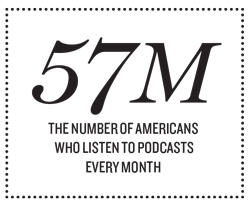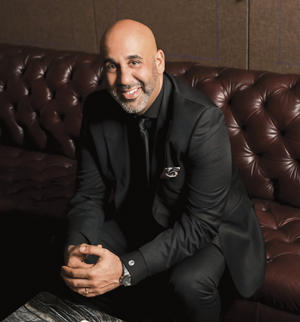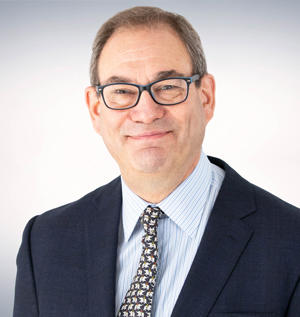After recording almost an entire season of his podcast, “Hey BK,” in a Bushwick studio, Ofer Cohen decided it was time to invest in his own on-site audio operation.
So the founder and CEO of the Brooklyn-based commercial brokerage TerraCRG turned the former “meditation room” in his firm’s Prospect Heights offices into a podcast studio, complete with soundproof foam walls.
Cohen is now recording his second season of the podcast, which focuses on the “people behind the Brooklyn transformation.” His guests have included developer Toby Moskovits, founder and president of Heritage Equity Partners; Industry City CEO Andrew Kimball; and Two Trees CEO Jed Walentas, among others.
Cohen — whose podcast airs roughly once a month — isn’t the only New York City real estate player getting into the digital audio space.
And with good reason: some 57 million Americans listen to podcasts each month, according to research by Podtrac, which measures podcast audiences. As of last month, there were over 660,000 active podcasts, according to Podcast Insights, which helps podcasters launch and monetize shows.
Given the popularity of the medium, perhaps it’s not surprising that a number of New York brokers and developers have jumped into the fray in the last few years.
While none of the New York-based real estate players are topping the charts — and only three of the top 100 business podcasts on iTunes nationally are real estate-focused — listenership is growing. And at least some New Yorkers, not to mention listeners in other parts of the world, have these hosts piped into their ears as they commute to work, exercise and cook dinner.
Vince Rocco, a broker with Halstead, is among those New York real estate hosts.

When he began in 2014, Rocco’s only listener was his brother. Now, he said, his live panel-style talk show, “Good Morning New York, Real Estate with Vince Rocco,” draws up to 45,000 listeners every week. (Listener numbers aren’t publicly available, so all of the numbers cited here are self-reported.)
Rocco’s show, which airs weekly on the internet radio station VoiceAmerica and is then available as a podcast download, covers the New York market and trends among buyers and sellers. A rotating panel of regular contributors is joined every week by guests like Sotheby’s International Realty broker Nikki Field and industry veteran and B6 Real Estate Advisors CEO Paul Massey.
Every Tuesday morning, Rocco — who studied broadcast journalism at Iona College — and his panelists and guests squeeze around a small table at Blast Off Productions, a recording studio in a nondescript Midtown building, where electric guitars hang on the walls and a drum set is tucked into a corner.
Rocco tries to speak as little as possible to give his regular panelists — who include brokers Matthew Cohen, who just joined Halstead from CORE Real Estate, Nile Lundgren of Compass and Douglas Elliman’s Jordan Shea and Tracie Hamersley — the floor. “It’s their vehicle,” he said.
The advertising effect
While it’s next to impossible to determine just how valuable these podcasts are to business, podcast hosts say they have been contacted by listeners looking to buy or sell real estate.
A couple reached out to Halstead’s Cohen after listening to him on Rocco’s podcast and ended up buying a two-bedroom duplex in Harlem, with a small outdoor area, for $1 million.
Michael Schulte, a broker with Citi Habitats and host of “Mike Schulte’s NYC Real Estate Podcast,” said one of his listeners and Instagram followers also became a client.

BHS’ Danny Nassi releases his eponymous podcast once or twice a month.
“The more places you’re accessible to people, the more likely you are to connect to people,” said Schulte. “It’s ultimately advertising in a different form. You’re creating something without asking for anything in return.”
But those cases seem to be more the exception than the rule.
Nonetheless, podcasts are, at the very least, something of a networking platform.
“Great friendships have formed because of the show,” said Halstead’s Cohen, adding that such bonds are unusual in a cutthroat business like real estate. “Everyone has a camaraderie.”
For CORE’s Lynne White and Robert Taub, podcasting has been a natural extension of pre-real estate careers. The co-hosts of the “CORE Conversations” podcast, which airs two or three times a month, both worked in media before becoming full-time brokers in 2005. (White is a former news anchor on WNYW’s “Good Day New York” and on WPIX, while Taub started out as a writer and television producer and became a Huffington Post columnist and on-air pundit on Fox News Live.)
“I’ve been in radio and television for most of my career, so it’s not something I want to let go of,” Taub said. “I want to be able to use it effectively in the real estate business.”
Taub and White’s podcast is recorded in restaurants like the Benjamin Prime Steakhouse in Midtown, where the duo sits in a quiet wine room, and the Russian Tea Room, where they record amid the hustle and bustle of diners. Both venues give the podcasters space in return for promos on the show.
Guests range from title agency lawyers to custom window fitters to reporters (including this writer, who was interviewed on the podcast in early March).
Taub owns the audio equipment — including a Zoom recorder (which can cost around $400) and Shure microphones (which usually sell for around $100 each) — needed to produce a show. “I carry a radio station around in a bag that’s smaller than a lawyer’s briefcase,” he joked.
Despite those equipment costs, podcasting is also far less expensive than video, not to mention less labor-intensive and daunting.
“I think video intimidates a lot of people,” said Marcus & Millichap executive managing director Peter Von Der Ahe, host of the “Behind the Bricks” podcast, which focuses on the New York multifamily market. “But if you have someone relax, they will open up if it’s audio.”

Von Der Ahe’s podcast — which airs once or twice a month — has featured multifamily investors like Treetop Development co-founder Adam Mermelstein and Benchmark Real Estate co-founder Jordan Vogel, as well as reality TV star and Nest Seekers International broker Ryan Serhant.
Von Der Ahe said one of his favorite guests was Christopher Voss, an FBI hostage negotiator-turned-business consultant who co-authored the 2016 book “Never Split the Difference: Negotiating As If Your Life Depended On It.”
“The most dangerous negotiations are the ones you don’t know you’re in,” Voss said during the episode.
Von Der Ahe sees it as good advice. “And where else are you negotiating, besides New York City real estate?” he said.
Operation inspiration
In general, New York City’s real estate podcasters tend to steer clear of controversial topics and stick to market trends or inspirational success stories.
And most are looking to reach an audience beyond the real estate industry.
As TerraCRG’s Cohen said, his show is “a Brooklyn podcast, not a real estate podcast.” Last month, for example, Cohen interviewed the artistic director of St. Ann’s Warehouse, noting in an email promo for the episode that the “program’s trajectory is closely linked with Brooklyn’s resurgence.”
Halstead’s Rocco, meanwhile, said his podcast is “for the public, not for brokers.”

CORE Real Estate’s Rob Taub and his co-host record their podcast in Manhattan restaurants.
And Brown Harris Stevens’ Danny Nassi launched the “Danny Nassi Podcast” in 2018 and releases one or two episodes a month. He said he’s looking to be a resource for young listeners who are gifted and have ambition but may be lacking direction, like he was early in his career.
“I wanted to give them a space where they could come in and listen to people who are successful,” said Nassi. “No one had an easy road.”
Nassi, who has two daughters (ages 9 and 11), said he’s particularly interested in interviewing inspiring women. “I want my daughters to realize they’re capable of doing whatever they want,” he said.
Bess Freedman, the CEO of BHS, and interior designer Taylor Spellman have both been among his recent roster of guests.
Like others, Nassi said the financial upshot is not a good reason to get into the podcasting game.
“I’m investing money into studio time,” said Nassi, who records at Jambox Entertainment Studios near Penn Station. “I’m investing in people.”
Lee Evans, who has run Jambox for two decades, said hourly rates are around $100 for a studio, equipment and professional recording, including basic production.
Those types of production costs are generally carried by the hosts.
Rocco said he pays VoiceAmerica for network time. “If business comes out of it, that’s a bonus,” he said, adding that his firm, Halstead, advertises on the show.
TerraCRG’s Cohen advises new podcasters to manage their expectations. “It’s not a commercial venture,” he said. “You’re not going to get a million people listening.”
Marcus & Millichap’s Von Der Ahe agreed, noting that the appeal for him is getting “to the essence or story of someone or their business.”
“The primary way human beings have shared information with each other has been through stories,” he said.
